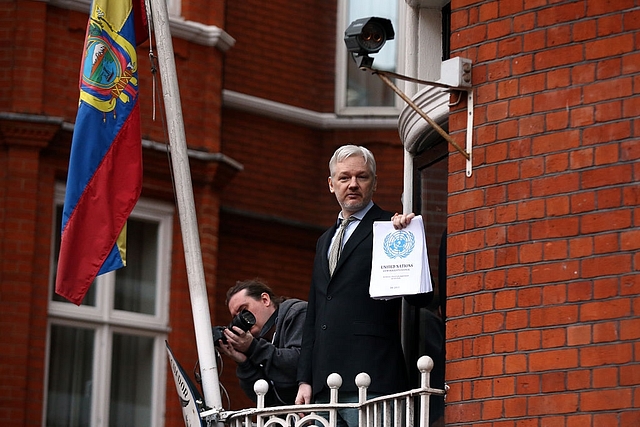
Is The US Deep State Working To Silence Julian Assange?
In a tweet Monday, WikiLeaks claimed that Secretary of State John Kerry had asked Ecuador to stop Assange from publishing.
The US could have used the Colombian peace process as a bargaining chip.
In a major development on Saturday, the Ecuadorean Embassy in London cut off Julian Assange’s internet connection while he was preparing to release a series of damaging disclosures about the United States presidential candidate Hillary Clinton. WikiLeaks recently made news by releasing a batch of controversial emails related to Clinton’s campaign chair John Podesta and was set to release another set of 50,000 emails before the elections.
Later on Tuesday, Ecuador admitted that it was responsible for cutting off internet access to Assange, the founder of WikiLeaks.
In 2010, WikiLeaks published classified US military and diplomatic documents in one of the largest information leaks in the US history. The organisation has remained at odds with the most powerful governments and institutions.
Assange, who is wanted in Sweden concerning an accusation of rape, sought and was granted asylum by Ecuador in 2012. Since then, Assange has been living in the Ecuadorean embassy in London to escape arrest and extradition to Sweden. The 1984 Cartagena Declaration, observed in Latin America, makes it easier for refuge seekers to gain diplomatic asylum in these countries. Moreover, countries in Latin America including Ecuador do not have cordial relations with the US due to Washington’s interventionist policies. This, in turn, made the asylum possible.
In a tweet late on Monday, WikiLeaks claimed, citing its sources in the US, that Secretary of State John Kerry had asked Ecuador to stop Assange from publishing documents related to Clinton during peace negotiations with the Revolutionary Armed Forces of Colombia (FARC). The FARC rebels have been fighting a guerrilla war against the Colombian government in which the US acts as a negotiator. In another tweet, the organisation claimed that Kerry meet with Ecuadorean officials on the sidelines on the FARC peace negotiations in Colombia. Clearly, the organisation is bringing to light the fact that the US could have used the peace process as a bargaining chip.
Ecuador, which has a considerable stake in the Colombian peace process, could have caved in to pressure from the US.
While the Ecuadorean foreign ministry claims to have exercised its sovereign right, the US state department has denied any involvement. Though some reports in media establish Ecuadorean President Rafael Correa’s liking for Clinton, one thing is clear for now: no one other than the current ruling establishment in the US could benefit from Assange’s inability to release emails that can potentially hamper Clinton’s presidential campaign. Therefore, it is clearly the US deep state that is pulling wires to stop Assange from releasing damming proof of Clinton’s wrongdoings as the Secretary of State.